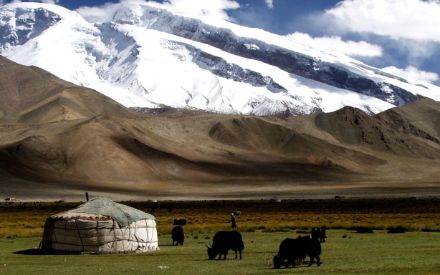Service Navigation
Search

Overview
It is widely recognized that global climate change poses a major threat to sustainable development objectives. In order to build up climate resilience, decisions concerning mitigation and adaptation strategies on climate change must be based on high-quality data, collected in a sustainable manner. CATCOS contributed to filling data gaps in regions where climate-relevant information has been missing or measurements have been ceased. In doing so, the project provided a significant contribution to the Global Climate Observing System (GCOS).
CATCOS supported the monitoring of the essential climate variables aerosols, greenhouse gases and glaciers in ten developing and emerging countries. To ensure the sustainable continuation of the observations, the implementation of the new measuring instruments was accompanied by a set of training activities. These enhanced the skills of local station operators and scientists in standard data processing methods, quality control, data analysis and scientific publication. The resulting high-quality data were submitted to the respective international data centers where they were made available freely. In addition, CATCOS enhanced regional cooperation to optimize the use and benefit of climate observations and services. Well-targeted communication on local, regional and global scales highlighted the benefit of the available data for science-based decision-making.
Phase 1 of the project ran from September 2011 to March 2014 (for more informations see CATCOS Phase 1). The second phase started in April 2014 and the activities ran through December 2016 (for more information see CATCOS Phase 2).
Project Organization
CATCOS was funded by the Swiss Agency for Development and Cooperation SDC and was coordinated by the Federal Office of Meteorology and Climatology MeteoSwiss. The project was realized through close collaboration between Swiss and national partners from Africa, South East Asia, South America and Central Asia. As a global partner, the World Meteorological Organization WMO was instrumental in embedding the activities in the respective regions.
All four Swiss partner institutions are experts in their respective fields. They are experienced in building up atmospheric and terrestrial measurements globally and are well versed in training station operators and scientists in an international environment.
The Paul Scherrer Institute (PSI) took the leading role in implementing aerosol measurements in the target countries.

The Swiss Federal Laboratories for Materials Science and Technology (Empa) was responsible for the installation of the greenhouse gas component of the project.

The University of Fribourg conducted the glacier monitoring activities in Central Asia.

The University of Zurich was responsible for glacier measurements in South America.
